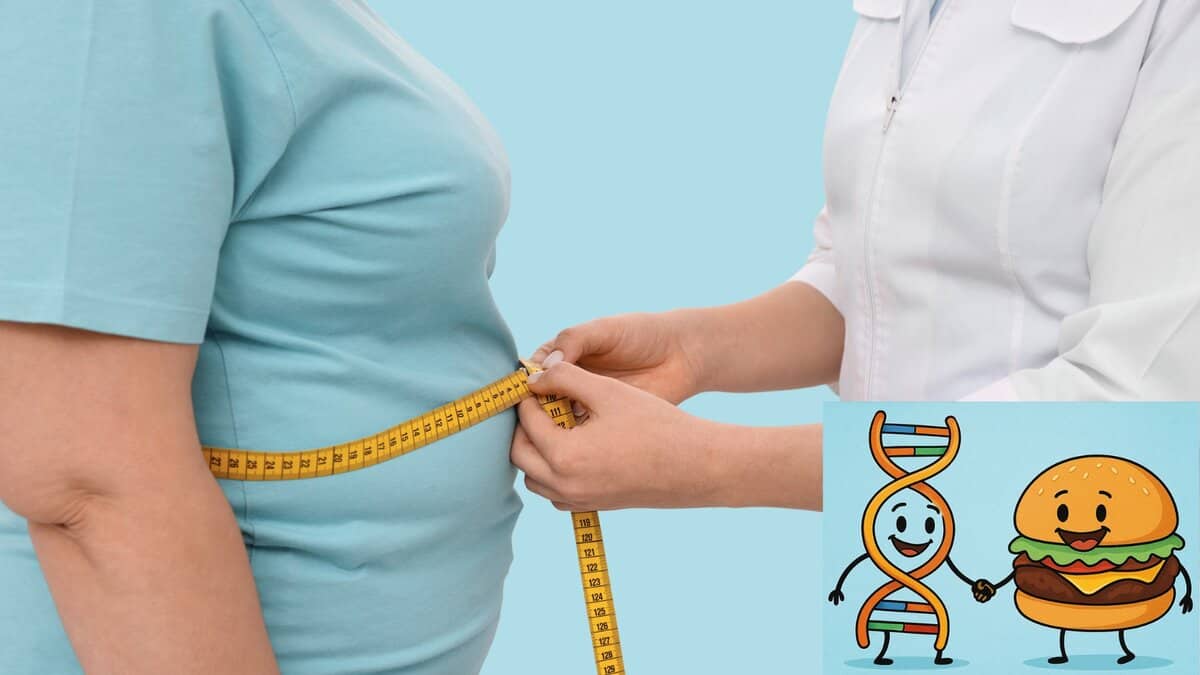Health
Global Study Reveals Alarming Rise of Obesity in India

Obesity is becoming a pressing health concern in India, with new research indicating that lifestyle, diet, and nutrition significantly influence obesity rates among the population. A global study titled “Obesity and its Genetic Basis in South Asians – Insights from Indian cohorts” highlights that lifestyle changes and targeted nutrient supplementation may be more effective than genetic predisposition in managing obesity risk for Indians. The findings, led by Dr. Giriraj Ratan Chandak from the CSIR-CCMB in Hyderabad, underscore the urgency of addressing this growing epidemic.
The World Obesity Federation predicts that by 2035, more than half of the global population will be classified as overweight or obese. These conditions are linked not only to social stigma but also to serious health risks, including diabetes, cardiovascular diseases, reproductive issues, and certain cancers. The study, published in the scientific journal Nature Medicine, calls for urgent intervention to prevent obesity from escalating further.
Understanding the Indian Context
Obesity poses a significant threat in India, where the prevalence of non-communicable diseases like diabetes and hypertension is already high. The pattern of obesity in India differs markedly from that observed in Europe, with a tendency towards central obesity. Previous research by Dr. Chandak has shown that the genetic factors influencing non-communicable diseases in Indians are distinct from those in Europeans.
In this latest study, researchers at CSIR-CCMB analyzed the genomes of the Indian population, focusing on individuals with diabetes and those maintaining normal blood glucose levels. This long-term study, spanning nearly two decades, has provided a unique platform to explore the genetic underpinnings of obesity in Indians. Researchers identified several genetic changes associated with obesity and developed a Polygenic Risk Score (PRS) specifically for the Indian population, creating a “virtual individual” model to assess obesity risk.
Genetics and Lifestyle: A Complex Relationship
The research reveals a crucial link between genetic risk and lifestyle interventions. Individuals with a higher genetic predisposition to obesity showed a greater response to lifestyle changes such as diet and physical activity. However, they also faced a higher likelihood of regaining weight after interventions ceased. This finding emphasizes the need for sustained lifestyle management rather than short-term solutions.
Moreover, the study indicates that ancestry plays a significant role in obesity risk assessment. The PRS proved more accurate for individuals of European ancestry compared to those of South Asian descent. Many genetic variants associated with obesity in Europeans do not have the same impact on Indians, reflecting the unique obesity patterns within the Indian demographic.
Dr. Chandak commented, “The observations made from this study echo earlier results regarding height, where genetic variants identified in Europeans predicted a lower risk in Indians, highlighting the importance of environmental influences on gene expression.”
A Global Perspective on Obesity Research
This international study involved a collaboration of over 600 researchers from 500 institutions, utilizing the largest and most diverse genetic dataset to date. The dataset included genetic information from the GIANT consortium and 23andMe, covering more than five million individuals across various countries, including India. This comprehensive approach enabled the development of the PRS, which can predict the likelihood of obesity in adulthood based on genetic information available as early as childhood.
Assistant Professor Roelof Smit from the University of Copenhagen and lead author of the research, stated, “What makes the score so powerful is its ability to predict, around the age of five, whether a child is likely to develop obesity in adulthood, well before other risk factors start to shape their weight later in childhood. Intervening at this point can have a huge impact.”
As the issue of obesity continues to escalate, this research highlights the critical need for targeted interventions in early childhood and the importance of understanding the unique genetic landscape of different populations. The findings not only pave the way for better obesity management strategies in India but also contribute to a global understanding of the complexities surrounding this health crisis.
-

 World5 months ago
World5 months agoSBI Announces QIP Floor Price at ₹811.05 Per Share
-

 Lifestyle5 months ago
Lifestyle5 months agoCept Unveils ₹3.1 Crore Urban Mobility Plan for Sustainable Growth
-

 Science4 months ago
Science4 months agoNew Blood Group Discovered in South Indian Woman at Rotary Centre
-

 World5 months ago
World5 months agoTorrential Rains Cause Flash Flooding in New York and New Jersey
-

 Top Stories5 months ago
Top Stories5 months agoKonkani Cultural Organisation to Host Pearl Jubilee in Abu Dhabi
-

 Sports4 months ago
Sports4 months agoBroad Advocates for Bowling Change Ahead of Final Test Against India
-

 Science5 months ago
Science5 months agoNothing Headphone 1 Review: A Bold Contender in Audio Design
-

 Top Stories5 months ago
Top Stories5 months agoAir India Crash Investigation Highlights Boeing Fuel Switch Concerns
-

 Business5 months ago
Business5 months agoIndian Stock Market Rebounds: Sensex and Nifty Rise After Four-Day Decline
-

 Sports4 months ago
Sports4 months agoCristian Totti Retires at 19: Pressure of Fame Takes Toll
-

 Politics5 months ago
Politics5 months agoAbandoned Doberman Finds New Home After Journey to Prague
-

 Top Stories5 months ago
Top Stories5 months agoPatna Bank Manager Abhishek Varun Found Dead in Well









